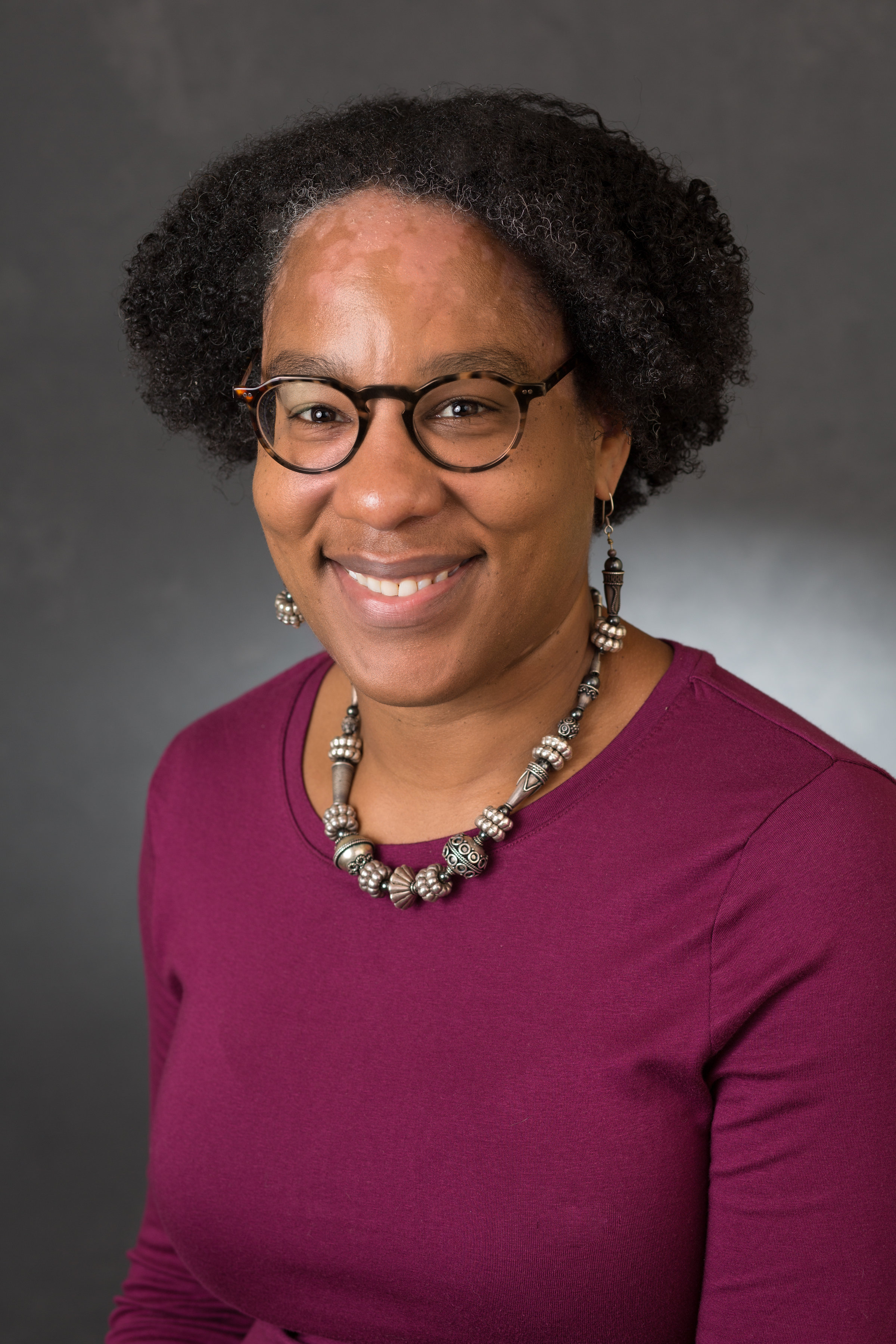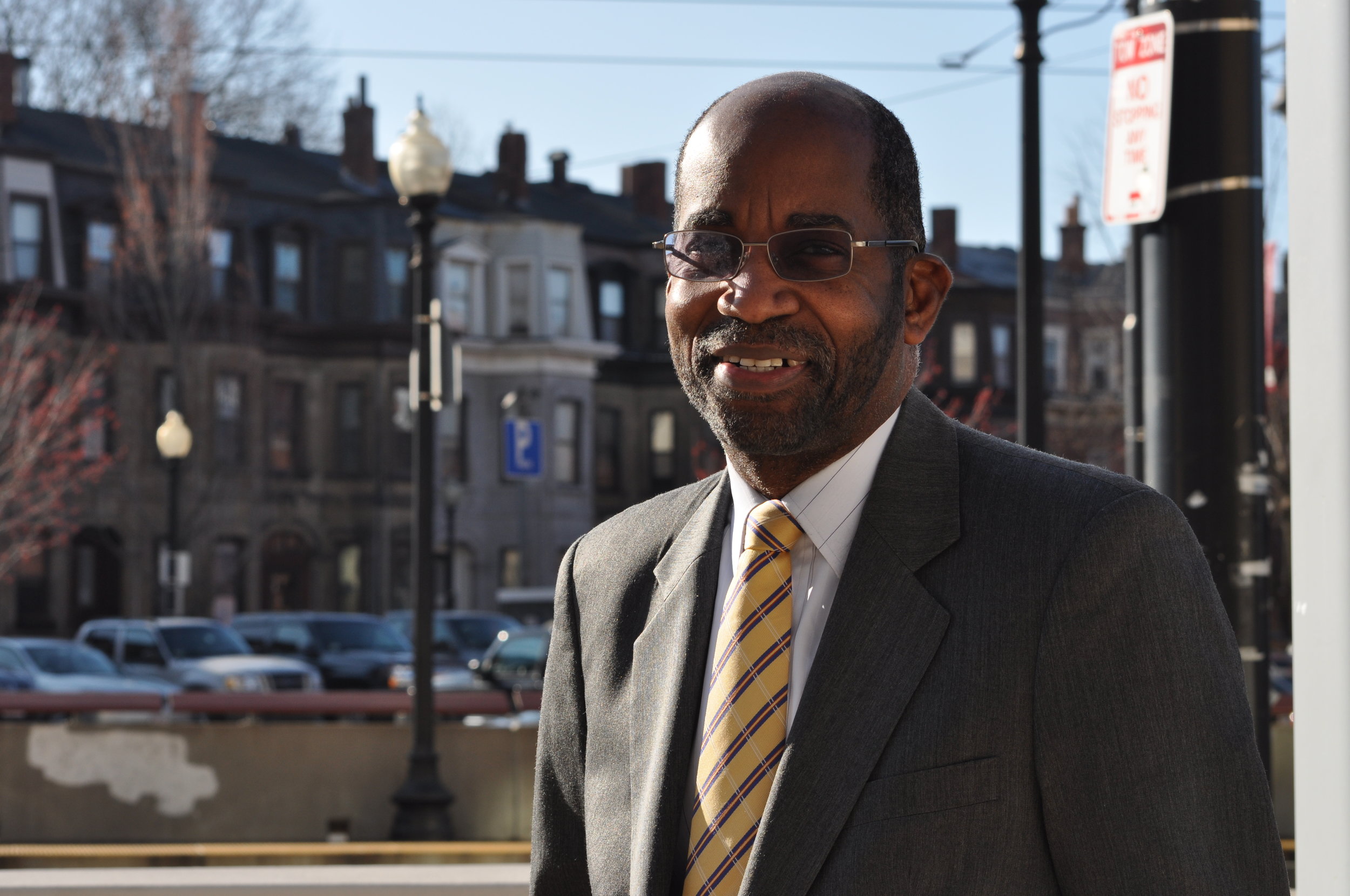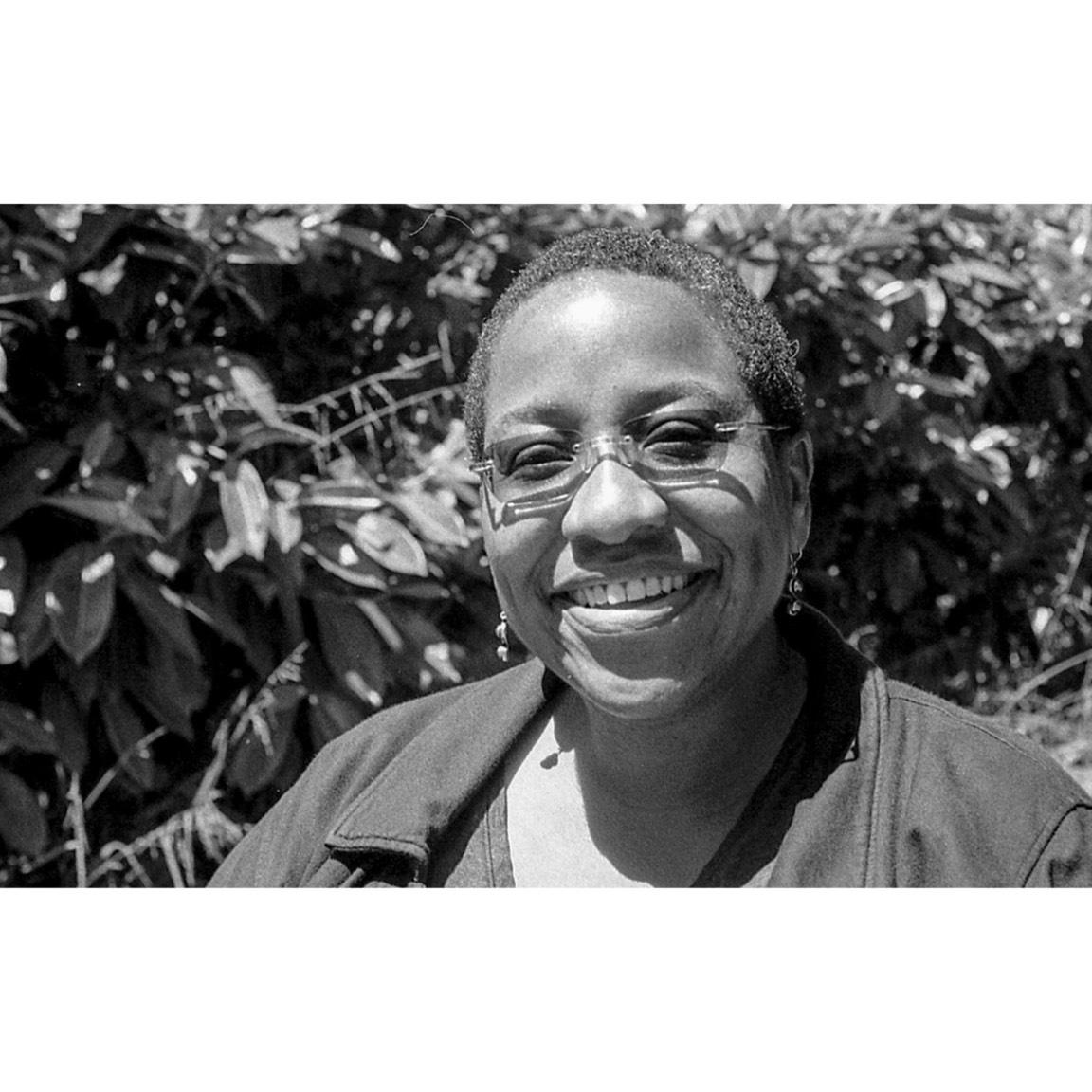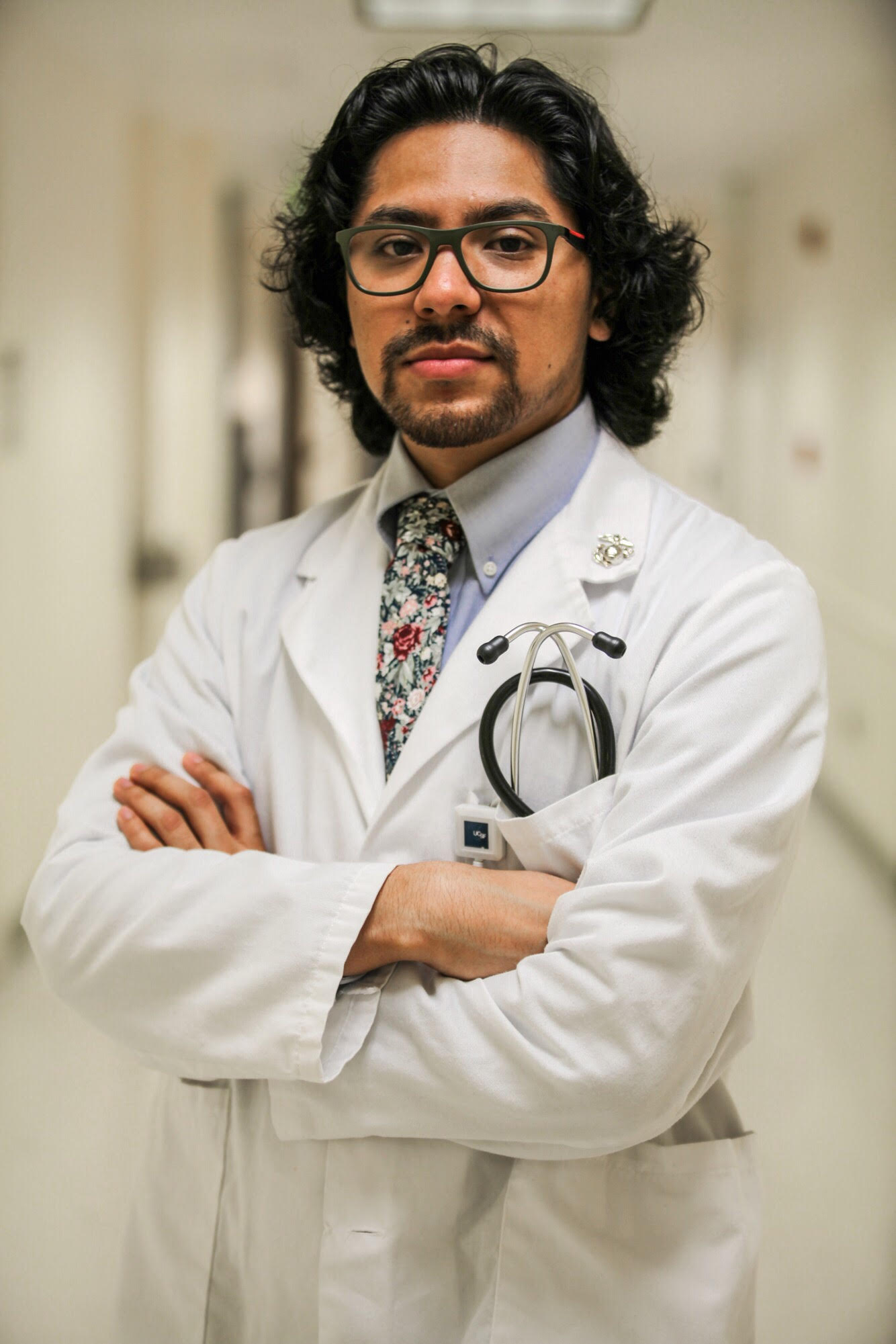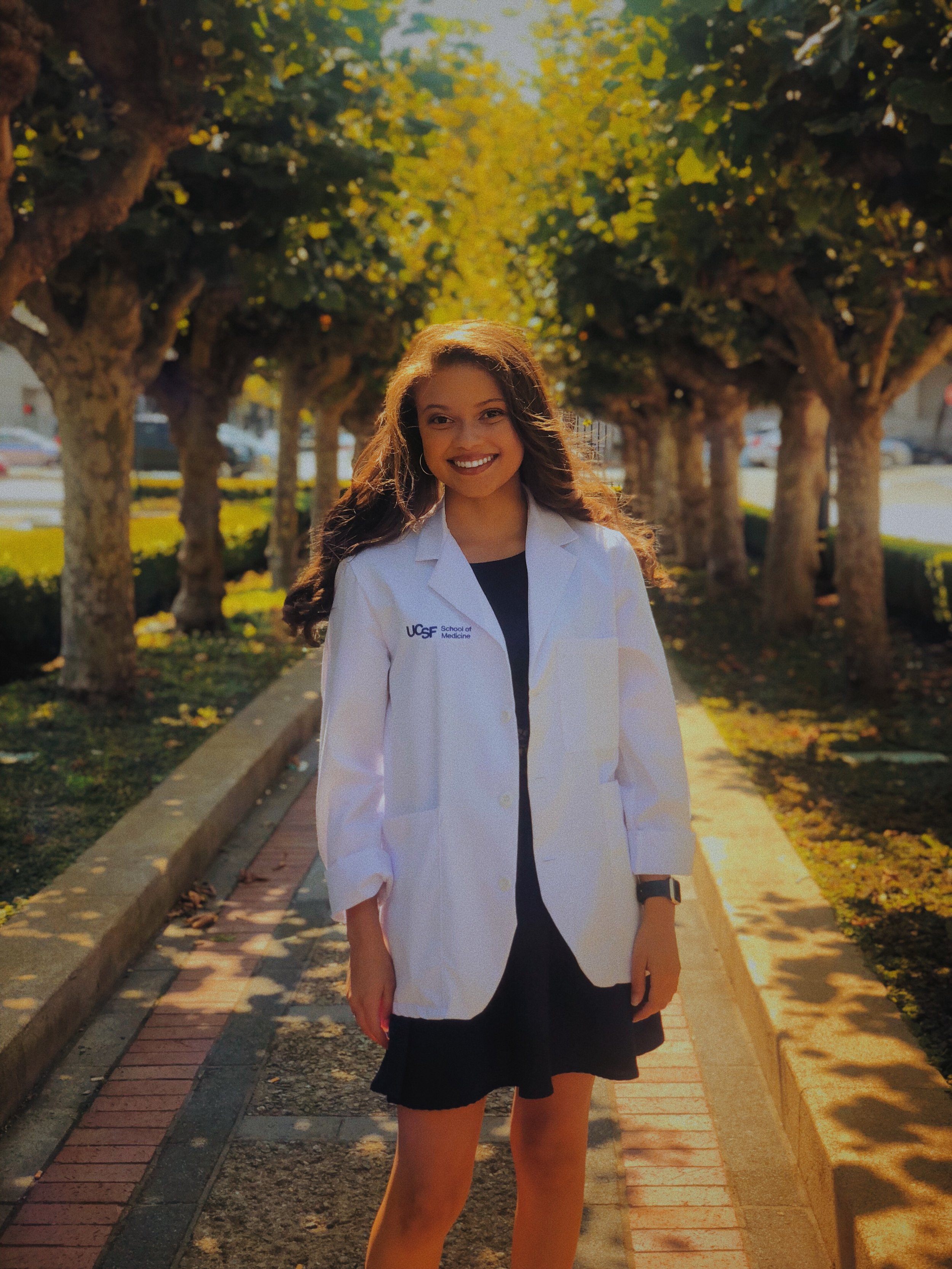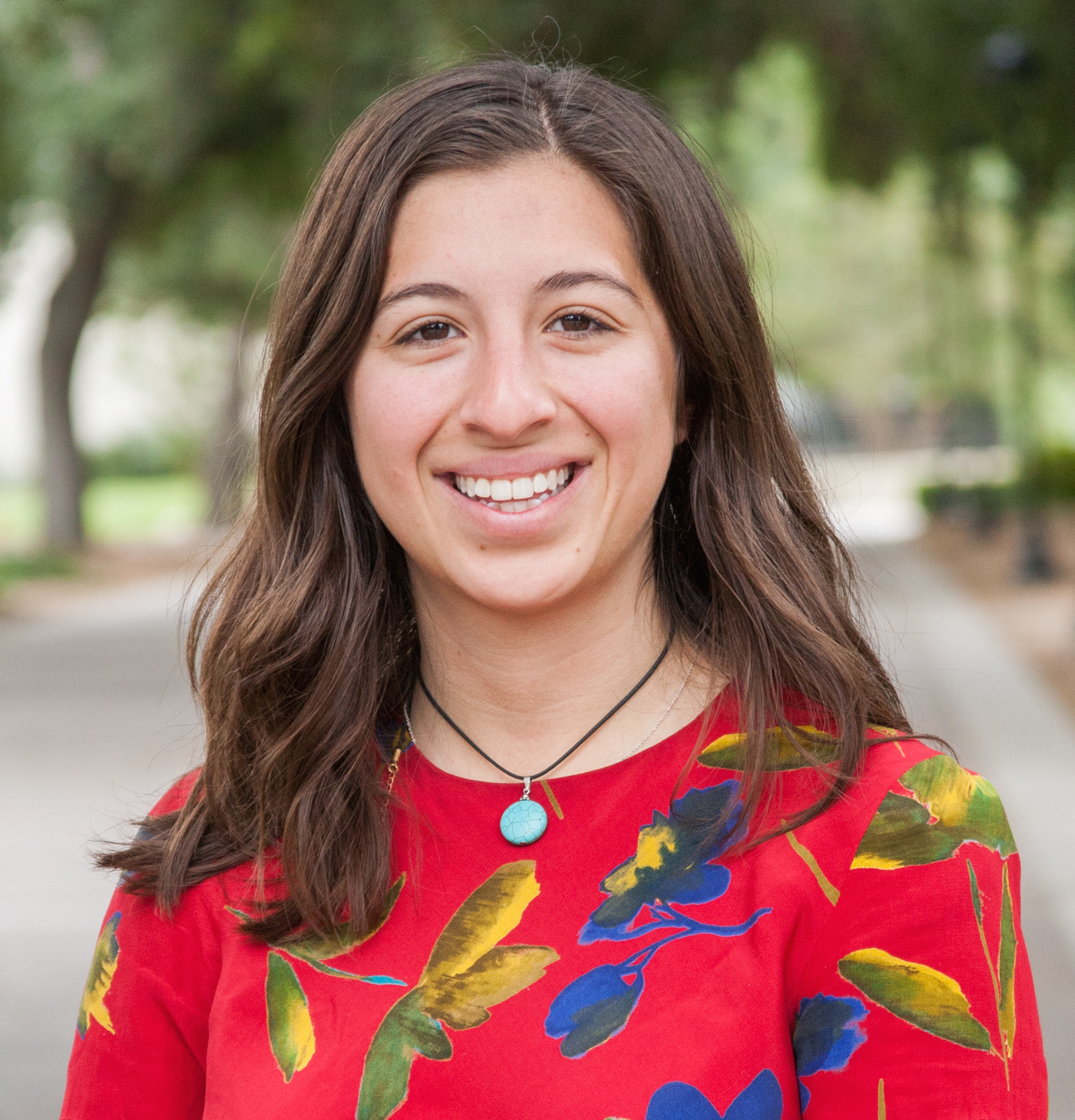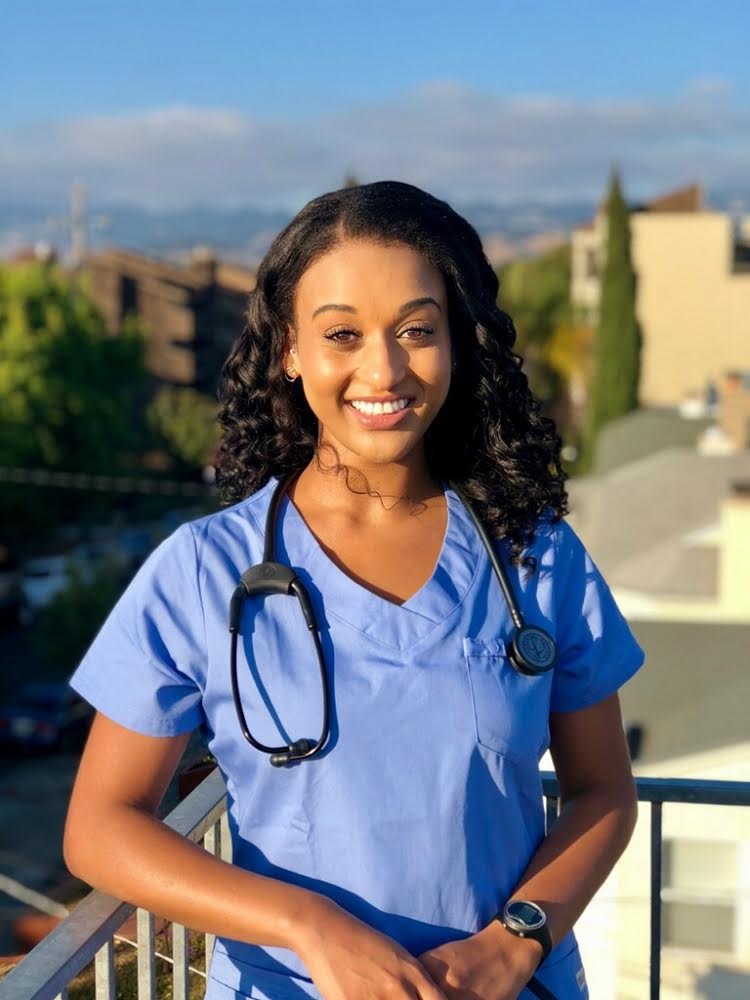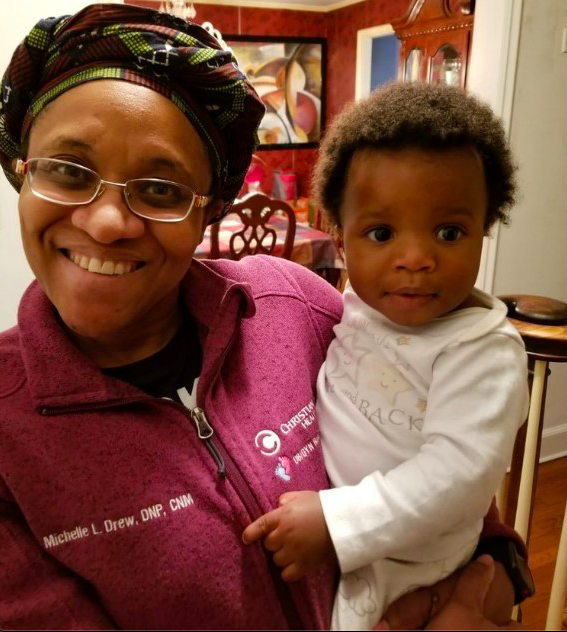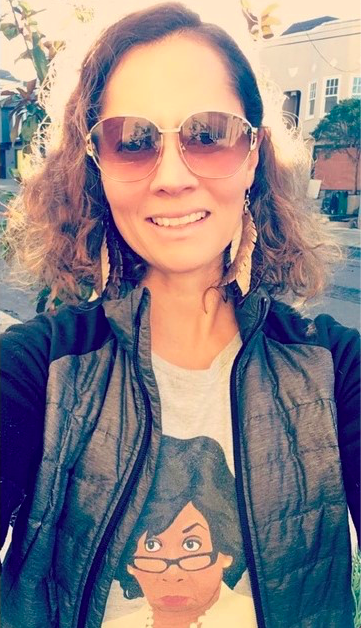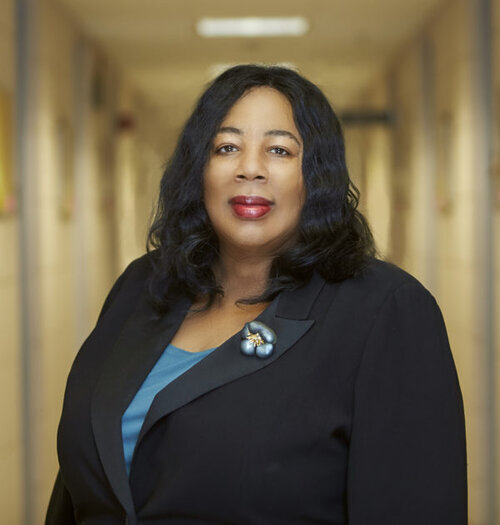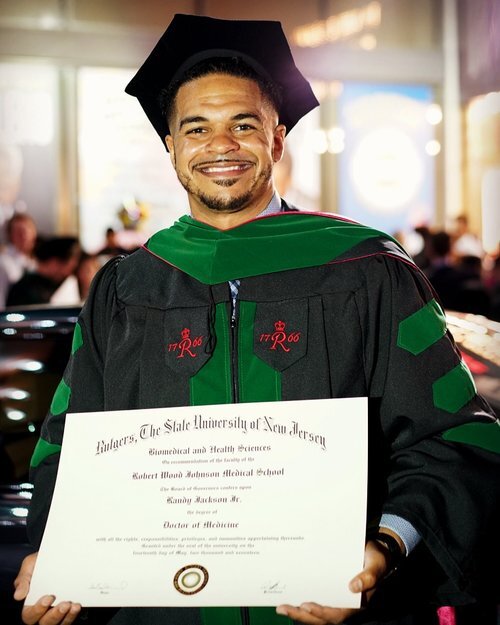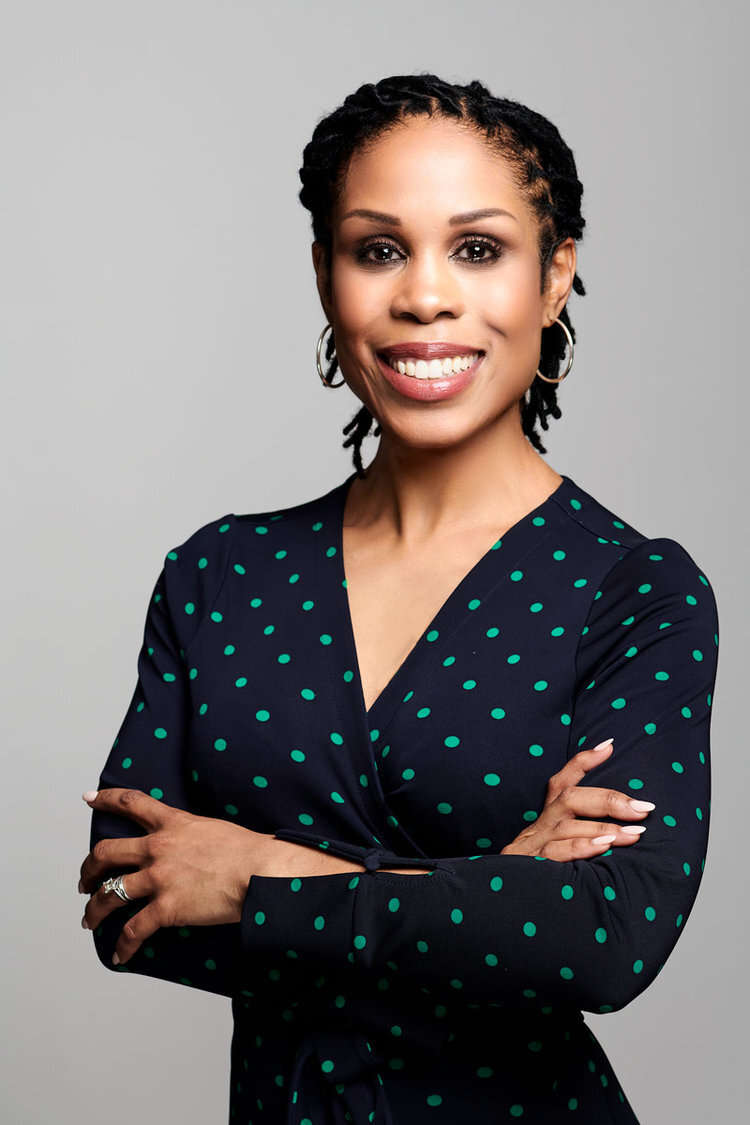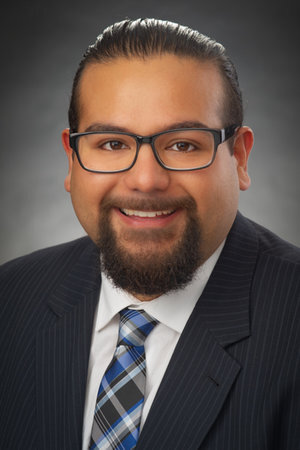Spotlight
This month’s spotlight features a handful of Melanin in Medicine contributors who are working to help address the COVID-19 pandemic, from two emergency medicine physicians, one infectious disease epidemiologist, one family nurse practitioner, and a medical student organizer.
Tomás Díaz, MD
Pronouns: he/him/his
Hometown: Born New York, NY; raised New Milford, NJ
Education: BA, Columbia University; MD, University of Pennsylvania
COVID-19 response: Dr. Díaz is part of a team of UCSF emergency medicine physicians who volunteered to travel to New York to assist in the coronavirus pandemic response. He was recently interviewed by CNN. His volunteer work represents an opportunity for him to return to the area where he grew up and to help contribute to the fight against coronavirus.
Why did you choose medicine? Ultimately, my passions are justice and equity; healthcare and education represent important means toward achieving those ends. As immigrants from the Dominican Republic and Cuba, my parents emphasized reading and education in our home so that my brothers and I might develop a strong command of English and have the opportunity to pursue any careers we might choose. I found myself deciding between teaching literature to high school students and attending medical school. I elected to pursue medicine with the expectation that education would remain an important part of my life and career.
Where are you now? I am in my final year of emergency medicine residency at UCSF-SFGH. After finishing my training, I will be staying at UCSF as a medical education fellow while pursuing a master’s degree in education at UC Berkeley.
What do you love most about your work? Recently, a woman stopped me outside of the hospital; she called to me by my first name. While I did not immediately recognize her, she reminded me that I had delivered her now 2 year old daughter. I, along with her closest family members, had been present for the one of the most important moments in her life. As an emergency physician, I have had the awesome privilege of being part of so many patients’ stories. And, so many patients have become part of mine.
What are your hobbies and interests? Running (I’ve run a number of marathons, half marathons, and relays); live music (I can’t create but I can appreciate); reading (I prefer narrative nonfiction and longform journalism)
Virgie Fields, MS
Pronouns: she/her
Hometown: Emporia, Virginia
Education: Bachelor of Science in Biomedical Engineering, Virginia Commonwealth University; Master of Science in Epidemiology, Harvard T.H. Chan School of Public Health
COVID-19 Response: First, let me say thank you to our frontline healthcare workers who put their lives on the lines every day to care for patients. Also, so much appreciation goes to our essential workers who keep our communities running.
100% of my work at the Virginia Department of Health (VDH) is now dedicated to our COVID-19 response. Our commonwealth implemented an Incident Command Structure beginning late January to prepare a coordinated public health response. There are a lot of people involved in the response spanning across different programs within VDH, other agencies, organizations, and of course our healthcare partners. I mainly assist our epidemiologists, public health nurses, and volunteers at the local health departments who are working tirelessly to complete case investigations and contact tracing. Our team provides consultation and guidance to them as they're trying to collect information that will help determine an individual's possible exposures (e.g., travel, close contact of a case, community transmission) and identify contacts to provide recommendations to limit the further spread of the virus. When requested, I coordinate with our HAI/AR team to provide consultation and infection prevention and control education to our healthcare facilities, particularly those that are experiencing an outbreak. Essentially, I assist wherever I'm needed, and I'm grateful to be able to play a small part in our pandemic response.
Why did you choose public health? My experience growing up in a rural community with a Cambodian refugee and a veteran with multiple health issues as parents helped shape my desire to improve people's quality of life, particularly for those marginalized communities. During undergrad, I became interested in exploring careers that encompassed aspects of research, medicine, and social justice. Public health assesses the health of a population, identifies the issues, investigates the causes of those issues, and devises strategies to solve/improve/prevent them. This involves the coordination of several sectors of society and often leads to policy changes. I felt this was exactly what I wanted to do.
Where are you now? I am currently a Healthcare-Associated Infections (HAI) Epidemiologist at the Virginia Department of Health in Richmond, VA.
What do you love about your work? As an epidemiologist, I ensure the statewide collection, monitoring, analysis, and distribution of HAI surveillance data. I most enjoy being able to use data for action - working with hospitals and other healthcare facilities to investigate outbreaks and reduce infection rates using the data we collect. I also enjoy being part of a team and working with our partner organizations, using our different ideas and experiences to create solutions.
What are your hobbies and interests? I enjoy listening to music, watching movies and binge-watching TV shows, spending time with friends and family, trying different foods, and traveling to new places.
Rosny Daniel, MD
Pronouns: He, him
Hometown: Huntington Beach, CA
Education: Occidental College '09, UCSF Med School '14, UCSF-ZSFG EM Residency '18
COVID-19 Response: In addition to serving as a frontline emergency medicine physician in the Bay Area, Dr. Daniel recently opened up about his experience contracting COVID-19 as a healthcare provider. You can read about his experience in his commentary entitled “I am an ER Physician, and I have COVID-19.”
Dr. Daniel was interviewed by NPR regarding his COVID-19 recovery in a segment entitled “Coronavirus Survivors Have Questions About What Recovery Means.”
Why did you choose medicine? I love science and view medicine as an honorable profession that is incredibly interesting to practice.
Where are you now? Medical Education Fellow at UCSF and Pool Doc at Kaiser in the bay area.
What do you love most about your work? I love doing emergency medicine - every day is a new challenge and there is always something exciting happening in the emergency department. I get to work with amazing folks and meet new people from every walk of life every single day I am at work.
What are your hobbies and interests? Soccer, basketball, running, HIIT, cooking, public speaking, mentoring, personal finance, live concerts at small venues, dogs, travel, stand up comedy and much more!
Bernadette Lim, MS, MD Candidate
Pronouns: she/siya/ella
Hometown: Los Angeles, CA
Education: BA in Human Evolutionary Biology and Studies of Women, Gender, and Sexuality at Harvard; MD/MS Candidate at the Joint Medical Program with UCSF School of Medicine and UC Berkeley School of Public Health
COVID-19 response: Bernadette helped to create The Bay Area COVID-19 Mass Resource List, which is available in English and Spanish. It is a compilation of community resources available to help our communities at this time. Resources emphasize those Bay Area resources (spanning food, housing, emergency funds, childcare, education, grocery service etc.) specific to families, adults, elderly, and communities that hold intersectional identities. The guide has been shared and utilized by 200+ community organizations in the Bay Area. It is updated regularly.
About Bernadette Lim: Bernadette (Bernie) Lim is a third year medical student at UCSF Medicine and recent Masters graduate of the Joint Medical Program at the UC Berkeley School of Public Health. She is a first gen soon to be doc with Filipinx and Toisan heritage. She is the founder of the Freedom Community Clinic, Freedom School for Intersectional Medicine and Health Justice, and creator/co-host of the Woke WOC Docs podcast. She was recently named as the Yamashita Prize recipient for Outstanding Emerging Social Activism in California and a 2020 Young Global Changer by the G20 World Policy Summit.
Why did you choose medicine? I'm passionate about bringing healing and justice to underserved communities. Medicine gives me the powerful opportunity to not merely be a physician seeing patients in the hospital, but more importantly be an advocate for injustices I see affecting communities and neighborhoods who are often not represented or underrepresented in these ivory towers. I want to become a doctor who you will not only see in the clinic dedicated to giving direct care to the underserved, but also an activist who is creating programs/initiatives/free clinics, leading Why did you choose medicine? I'm passionate about bringing healing and justice to underserved communities. Medicine gives me the powerful opportunity to not merely be a physician seeing patients in the hospital, but more importantly be an advocate for injustices I see affecting communities and neighborhoods who are often not represented or underrepresented in these ivory towers. I want to become a doctor who you will not only see in the clinic dedicated to giving direct care to the underserved, but also an activist who is creating programs/initiatives/free clinics, leading ”
Why did you choose medicine? I'm passionate about bringing healing and justice to underserved communities. Medicine gives me the powerful opportunity to not merely be a physician seeing patients in the hospital, but more importantly be an advocate for injustices I see affecting communities and neighborhoods who are often not represented or underrepresented in these ivory towers. I want to become a doctor who you will not only see in the clinic dedicated to giving direct care to the underserved, but also an activist who is creating programs/initiatives/free clinics, leading protests, and pushing the status quo towards addressing important issues that are voiced by the communities who are in need of the most care.
Where are you now? I'm in my second year at the UC Berkeley-UCSF Joint Medical Program! We are a dope, tight-knit social justice-oriented medical school program based in the East Bay, which has such an incredible history of community health and activism.
What do you love most about your work? As a medical student, I've already been exposed to extreme joys and sorrows of patients' lives. This is a continually humbling experience that helps remind me how fragile, emotional, and sacred life is. It is an honor to hold space and be a place of support for patients during their most vulnerable times as a life calling.
What are your hobbies and interests? I'm a creator and artist that dabbles in a lot of passion projects. Most recently, I'm the founding student organizer of theFreedom School for Intersectional Medicine and Health Justice. I'm writing a Masters thesis on Filipino youth health disparities. I also run several programs I created in the East Bay for youth combining health education, activism, and photography, am starting a podcast for WOC in Medicine, write poetry, avidly play the piano, and listen to R&B/soul music.
Denisse Porter-Inzunza, RN, FNP
Check out this article by Denisse and her colleague about Nursing Students of Color (NSOC).
Pronouns: she/her/hers
Hometown: As an immigrant, this has always been a question that makes me pause and think of where I have been. I was born in Mexicali, Baja California, Mexico. I immigrated to the U.S. in 1988 and lived throughout Southern California. Redlands, CA became my most recent hometown as I met my husband there and was where I had my three children.
Education: My educational journey begins with a certification as a Medical Assistant. I then attended San Bernardino Valley College and obtained Associates Degrees in Biology, Chemistry, and Liberal Arts. I was then able to transfer to the University of California, Riverside where I obtained my B.S. in Anthropology. Most recently, I completed my nursing education through the MEPN program at the University of California, San Francisco which led to my license as a Registered Nurse.
COVID-19 Response: As a primary care NP in the Mission district of SF within an FQHC, our role is to stay open for the community during this time. It is important for us to continue with chronic care follow up, therefore, we have implemented telephone encounters and offer in person acute care services with the goal of preventing people from going to the ER at ZSFGH. We also serve as a primary source of COVID symptom triage, with tents and testing starting tomorrow Monday. We are a primary source of COVID resource access information, such as food banks, child care access, community based org housing funds, shelters, and medication delivery. Especially since we serve people that are being disproportionately affected by coronavirus. Our role in the community is based on the needs we continue to identify. This week I was able to secure incoming resources such as masks for the community as they enter the clinic, some donations of PPE for health care workers, grocery store gift cards, and family toiletry supplies. The needs of the community in the Mission are great, unfortunately limited. We serve predominately an immigrant monolingual undocumented population who have been hit hard by the closures of service jobs such as restaurants and housekeeping. Many of whom do not qualify for the stimulus package and still live in fear in the context of public charge and racism. We are more than conduits of primary care services. There is an urgency in me to mobilize our networks as public health interdisciplinary teams. Last week, I reached out to UCSF colleagues, both Nursing Students of Color and the Associated Student of the SON to help put together social media posts and PDFs with sustaining efforts, political action items people can have on hand and do while they are at home. All with the purpose of highlighting the needs of under resourced health center, clinics, tribal nations, black and brown communities.
What made you choose nursing? Choosing nursing reflects trials and tribulations of my personal lived experience and searching for a career path that kept at the forefront marginalized communities. In this country and around the world marginalized communities reflect a need that is more than biological, a need for someone to connect with their social and biomedical experience while at the same time the essence of who they are as a human being. Nurses have the unique ability of seeing patients for what encompasses who they are as humans. Through nursing I can make people my primary concern as an advocate. Whether it is through one on one patient care, policy, or research development, nurses work with multidisciplinary teams to come up with solutions that promote quality and efficient health for communities. To me, nursing is where science can meet medical anthropological perspectives that can be practiced in many social structures to address social and health inequity perpetuated by structural racism.
Where are you now? I live in San Francisco, CA with my husband and three kids. I am currently a second year Masters in Nursing student specializing as a Family Nurse Practitioner at the University of California, San Francisco. My clinical placements are composed of community clinics such as La Clinica de La Raza and Mission Neighborhood Health Center.
What do you love about your work? As a full-time mother and student, I am currently not employed. I will speak on what I hope to accomplish and where I see myself in the near future. I seek to be an advanced practice nurse with a lens beyond the disease and focused on the lived experiences that lead people to illness. As a medical assistant in a family practice setting I listened to the frustrations with healthcare and was limited to what I could do but was inspired to continue my education and gain the skill set needed to further assist people with their physical health problems while keeping in mind the social factors that affected their health. As a Family Nurse Practitioner, I will be in the frontlines of primary care and prevention. In this role I want to be a trailblazer of health disparity solutions, as someone who identifies as a first-generation Latina immigrant, while being mindful of how these solutions affect people. I seek to see people for who they are, for the work they do, and the stress factors they deal with. Growing up without a family practitioner led to a lack of preventative care for my family and I, thus, I want to advocate for families that need a providers they can identify and communicate with through the lifespan.
What are your hobbies and interests? I enjoy spending free time with my children exploring the Bay Area and being outdoors along the coast. I am interested in meeting prospective nursing students of color and being a mentor for those who identify as first-generation students. I am passionate about organizing with my peers for a more inclusive and equitable education through our student organization Nursing Students of Color at UCSF as well as through my position as President of the Associated of the School of Nursing at UCSF.





